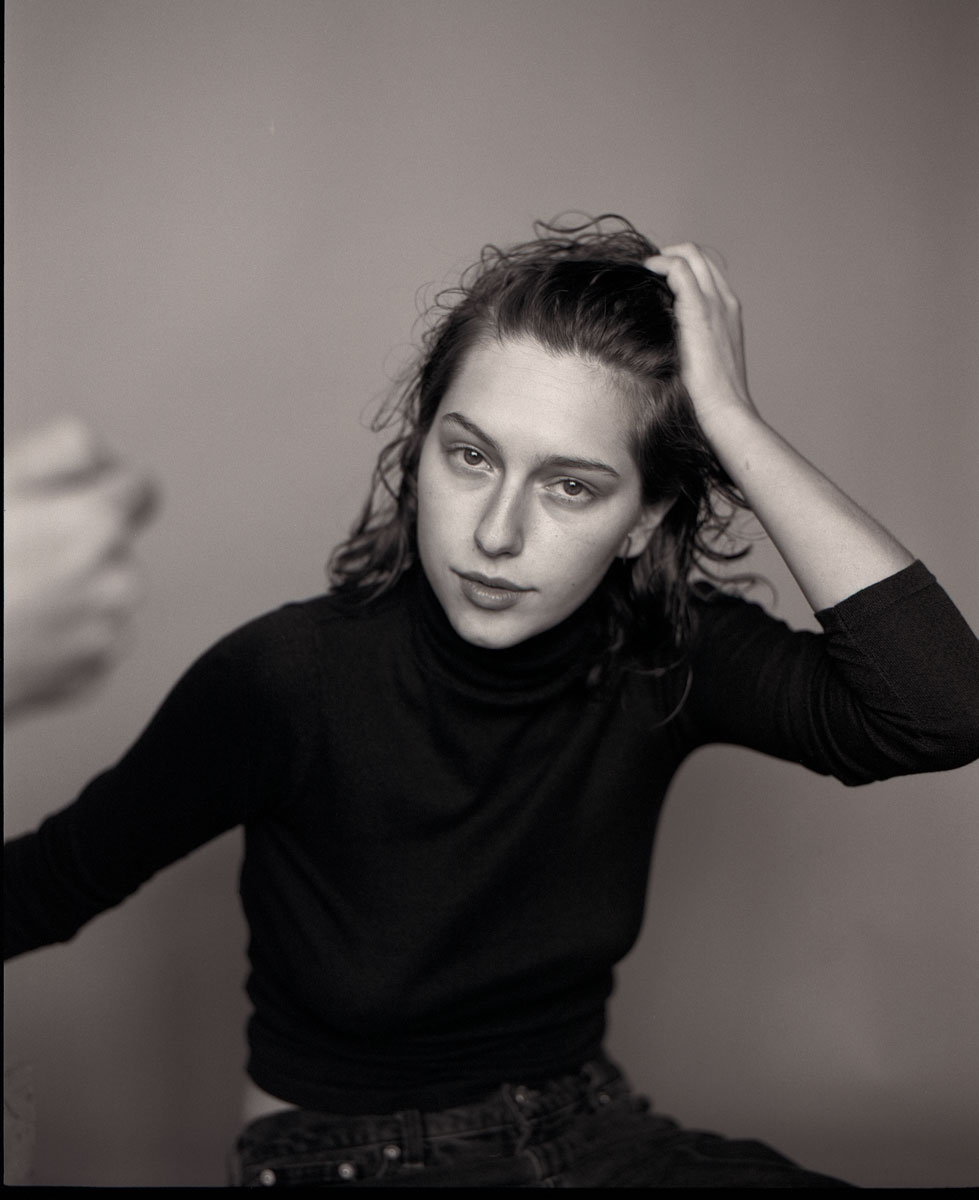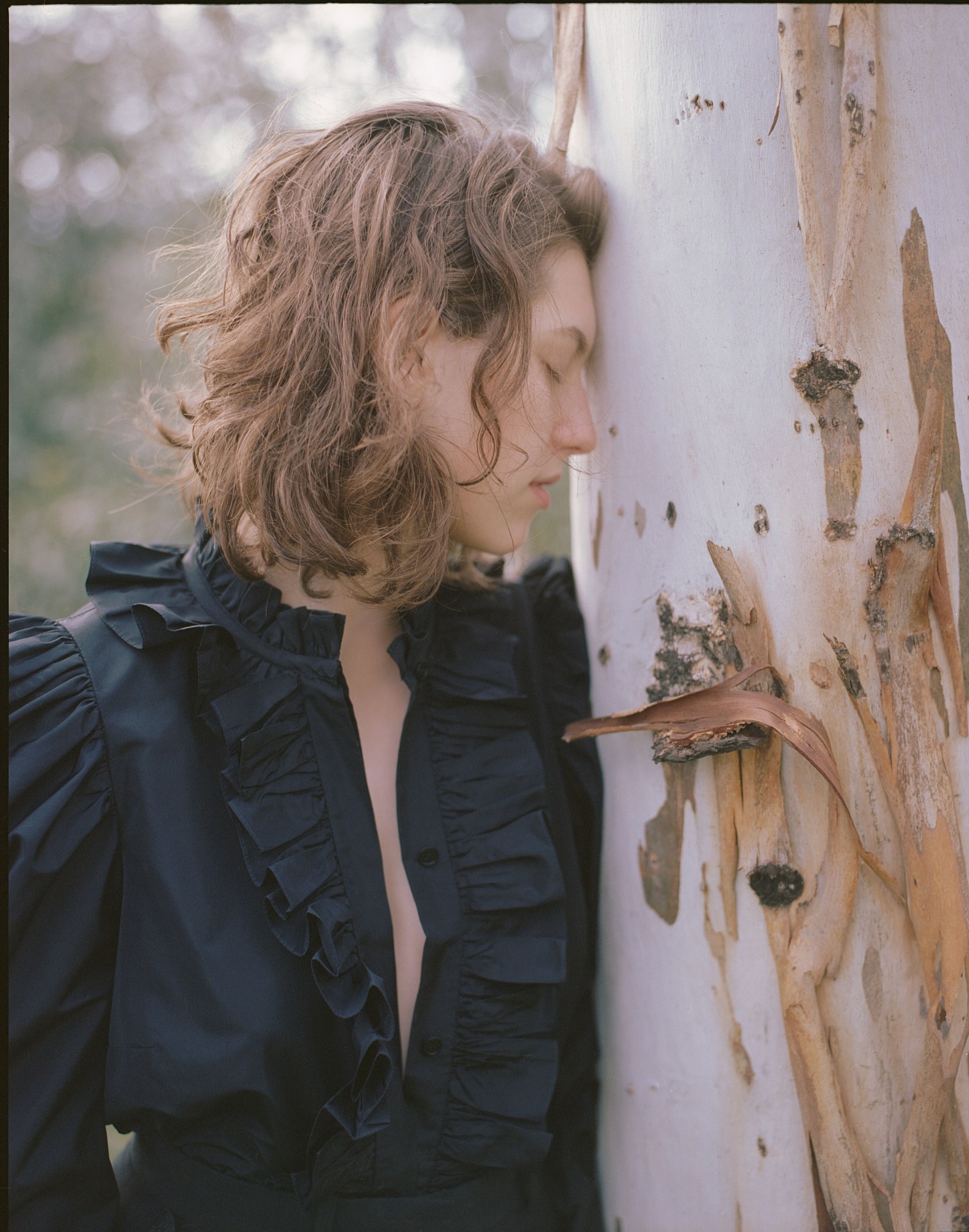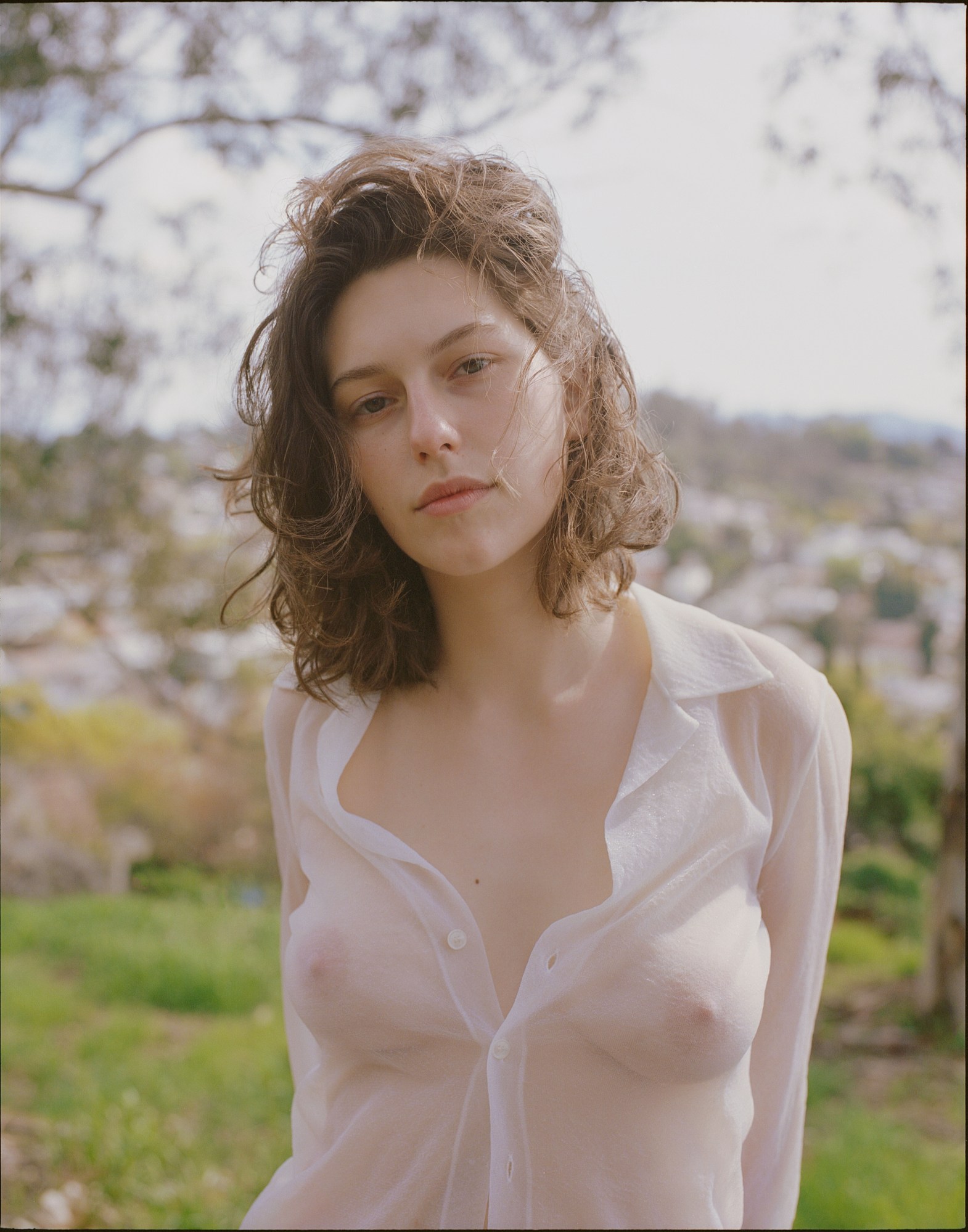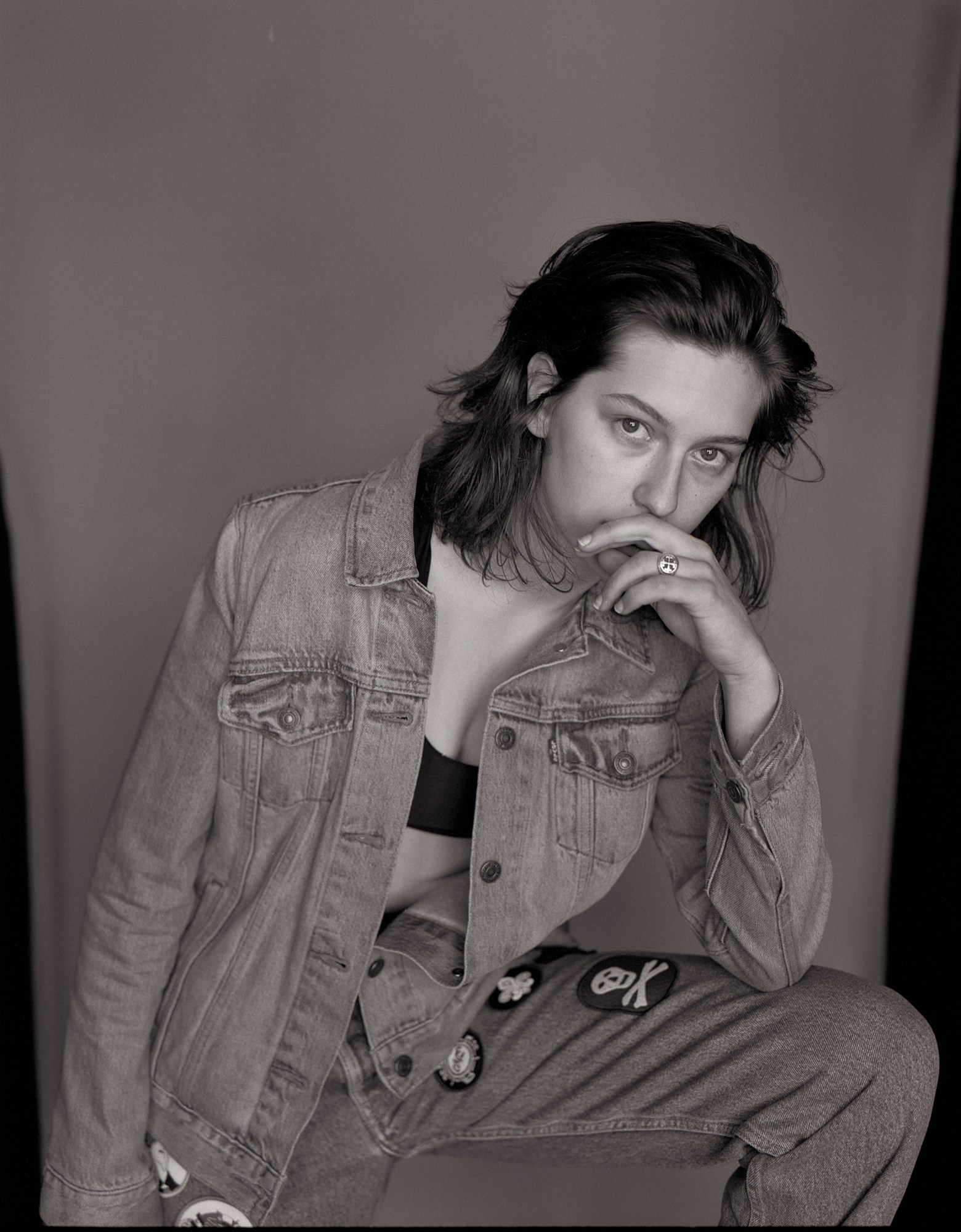Mikaela Straus, better known as King Princess, has just had 90 minutes of dental surgery and her face is almost entirely numb. What better time to call the 19-year-old singer, songwriter, multi-instrumentalist and producer for her first ever interview?
It was only a month ago that she released her debut single, 1950. A song inspired by one of her favourite books, 1952’s The Price Of Salt by Patricia Highsmith, which became the film Carol, and draws parallels between hidden desire and queer love. It’s a song full of longing and desperate intensity. “Historically a publicly unaccepted but incredibly rich culture, queer love was only able to exist privately for a long time, expressed in society through coded art forms,” the super smart artist shared on release. “I wrote this song as a story of unrequited love in my own life, doing my best to acknowledge and pay homage to that part of history.” Her husky vocals tell listeners: “I hate it when dudes try to chase me, but I love it when you try to save me”. It resonated. Harry Styles quoted the lyric on Twitter, Kourtney Kardashian shouted it out on Instagram and now 1950 can be found sitting pretty with over 13 million plays on Spotify and counting. Not bad for a first single.

“I really couldn’t have anticipated the response,” Mikaela says down the phone, mouth numb, but still lucid. “I wrote 1950 almost two years ago when I was getting out of the shower in my dorm room at USC. I recorded it two days later and it hasn’t changed since. I kind of just held onto it, reassuring myself that it would come out one day.” Come out it did. As did she, for that matter. “I reached a point in my life where I was like, well, am I gonna gender my songs?” she recalls. “And I decided, yeah, I’m gonna put fucking female pronouns in my songs. It doesn’t make any sense for me to hide that part of myself. I needed to do it to help love myself and get through shit. I needed to be true to it and be like, yeah, this song’s about a lady.” She got the name King Princess after stumbling on it when describing the feeling of her music time and time again in sessions, before deciding that, actually, it represents her pretty well: “It’s different, it’s weird, it plays with gender.”

A New Yorker through and through, Mikaela was raised in her dad’s Brooklyn studio, Mission Sound, where he has engineered records for artists including Cat Power and Taking Back Sunday. “The studio was in my house,” she says. “I loved growing up in that space because I got to fuck around with instruments and equipment. It was such a privilege to have that and I’m so grateful for my dad, he’s definitely a G.” A playground of dreams for the musical protégé, it was here that she picked up bass, guitar, piano and drums, as well as production and people skills. “I was a studio rat. People must’ve been like, ‘What the fuck is this small dykey child doing here?’ I learned how to communicate with other artists and how to be myself in a room full of people.” She started making “angry, punk-ass shit” when she was still a child, inspired by the rock music she was raised on – Led Zeppelin and T. Rex – as well as her own obsession with Jack White, amps, pedals and shredding. She was approached by Virgin Records when she was just 11. She and her Dad turned down the offer of a record deal, which sticks with Mikaela as an important lesson in both business and life. “I think saying no is the most powerful thing you can do. Just saying no, absolutely not. And I never ended up being any good at shredding, by the way,” she confirms. “I still can’t shred to this day, but I’m still into it.”

Mikaela moved to LA two years ago and did a year in the pop programme at the University of Southern California before quitting to focus on her own music full time. Naturally, she still feels most at home in a studio, and is stoked to have found her west coast family in a go-to crew of creative collaborators. If her very funny Insta-stories are anything to go by, Mikaela has also befriended some super cool, queer musicians; watching TV with Amandla Stenberg one night (“she’s so capable and talented and I’m such a big fan of her music”), and practising DJing with Romy of The xx the next. “It’s cool because I’m new to this, so it’s really nice to be embraced by people who have been in it for a minute. It’s insane and I love it, but it’s scary for sure.” Of her core friendship group, she says: “I’d like to think that we’re like the Scooby Gang in Buffy, but at the same time, The L Word… maybe we’d fall somewhere between the two? Buffy with just a little more gay.”
1950 has already led to King Princess being hailed as a gay role model for her young fans. “It’s really moving how many people have reached out, especially when you get messages from queer kids saying thank you. After one song! You know, I’m four weeks into this shit and I’m getting beautiful messages. It’s very, very sweet.” For a long time she’s noticed a real deficit of queer people to look up to in mainstream pop. “So you find these role models who best represent your values but might not necessarily be queer,” she says. “It’s true that these ‘gay icons’ are extremely important, but now it’s time to bring in those who are actually from the LGBTQ community. We’re working on it, and it’s amazing and I’m so proud of how far we’ve come. It’s important to look at history and what the circumstances were like 50 years ago, because it grounds you.”

Concerned that people think she might not have any more music to offer up, she assures us that there’s a whole “chill-ass EP” of intelligent, queer pop, and it’s heading straight for us. She’d love to see it juxtaposed as a soundtrack to a really wild movie, like Alien. “That’d be fierce. Imagine Sigourney in her tank top just ripping to 1950. That’d be sick.” In slow motion? “For sure in slow motion.” It’s said that you should be the change you want to see in the world, and Mikaela is aiming to do exactly that. “A lot of the music I like from the 60s and 70s is protest music – it’s talking about issues and fighting for a cause, and I love the idea that being open about your queer identity is a way to make art send a message again,” she says. “What better time? Everything’s fucked up right now. We gotta get art out there! I’d like to see a huge amount of political art that talks about the issues that we’re all having. It’s really gonna make a difference, because music reaches people: it has the ability to extend across this country, all the way across it, not just New York and LA,” she declares resolutely. “Right, I’m gonna go eat a fucking burrito now that my face is less numb.”
This article originally appeared in i-D’s The New Fashion Rebels Issue, no. 352, Summer 2018.

